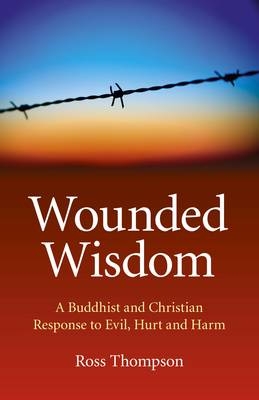
Wounded Wisdom – A Buddhist and Christian Response to Evil, Hurt and Harm
Seiten
2011
John Hunt Publishing (Verlag)
978-1-84694-597-7 (ISBN)
John Hunt Publishing (Verlag)
978-1-84694-597-7 (ISBN)
How can individuals and societies cut through the prevailing cycles of trauma, victimhood, accusation and violence? A Buddhist-Christian answer.
Most of us have lived through painful, humiliating or traumatic experiences, leaving us haunted and conditioned by reactions that trap us in ongoing cycles of feeling hurt and hurting others. And on the wider political scale, we have obviously yet to learn the art of responding well to the hurts of terrorism, exploitation, or more local conflicts of interest. Either we resort to reciprocal violence, or claim too readily the status of innocent victim. The book begins by looking at three predominant negative responses. It then draws on a variety of traditions from the author's own Buddhist Christian perspective, exploring how deep meditation can help take us beyond the negative narratives of hurt. The author finds ambivalent but broadly positive images in childhood innocence and the tragicomic fool, and urges the importance of a radical and unconditional forgiveness of self and others that is grounded in both Buddhist Emptiness and the risen Christ. By these means, the habit of accusation that so easily dominates self and society can give way to humour and mutual wonder.
Most of us have lived through painful, humiliating or traumatic experiences, leaving us haunted and conditioned by reactions that trap us in ongoing cycles of feeling hurt and hurting others. And on the wider political scale, we have obviously yet to learn the art of responding well to the hurts of terrorism, exploitation, or more local conflicts of interest. Either we resort to reciprocal violence, or claim too readily the status of innocent victim. The book begins by looking at three predominant negative responses. It then draws on a variety of traditions from the author's own Buddhist Christian perspective, exploring how deep meditation can help take us beyond the negative narratives of hurt. The author finds ambivalent but broadly positive images in childhood innocence and the tragicomic fool, and urges the importance of a radical and unconditional forgiveness of self and others that is grounded in both Buddhist Emptiness and the risen Christ. By these means, the habit of accusation that so easily dominates self and society can give way to humour and mutual wonder.
Ross Thompson has served for 20 years as an Anglican priest and lectured in theology and spirituality. He is the author of several well-acclaimed books on Christian spirituality.
| Erscheint lt. Verlag | 30.9.2011 |
|---|---|
| Sprache | englisch |
| Maße | 142 x 226 mm |
| Gewicht | 362 g |
| Themenwelt | Geisteswissenschaften ► Religion / Theologie ► Buddhismus |
| Religion / Theologie ► Christentum ► Kirchengeschichte | |
| ISBN-10 | 1-84694-597-6 / 1846945976 |
| ISBN-13 | 978-1-84694-597-7 / 9781846945977 |
| Zustand | Neuware |
| Informationen gemäß Produktsicherheitsverordnung (GPSR) | |
| Haben Sie eine Frage zum Produkt? |
Mehr entdecken
aus dem Bereich
aus dem Bereich
von Athanasius bis Gregor dem Großen
Buch | Softcover (2024)
C.H.Beck (Verlag)
12,00 €
eine Geschichte der christlichen Kunst
Buch | Hardcover (2024)
C.H.Beck (Verlag)
32,00 €


